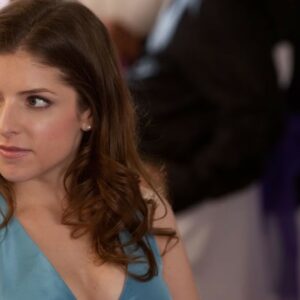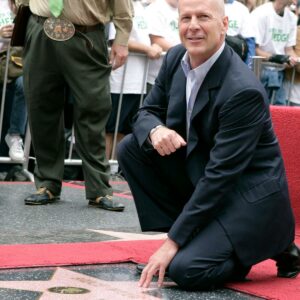Introduction
Daniel Radcliffe, widely recognized for his role as the beloved wizard Harry Potter, has grown into more than just a famous actor—he has become a prominent advocate for diversity and inclusion in the film industry. Radcliffe’s journey from child star to social activist reflects his dedication to ensuring that Hollywood evolves into a more representative space. His passion for diversity goes beyond surface-level discussions; he believes in the importance of authentic representation and has consistently used his platform to bring awareness to the challenges faced by underrepresented communities in film and television.
This article delves into Daniel Radcliffe’s perspective on diversity, highlighting his efforts to promote inclusivity, challenge harmful stereotypes, and push for systemic changes within the entertainment industry.
Radcliffe’s Perspective on Diversity
Radcliffe has made it clear that diversity in the entertainment industry should not be reduced to mere tokenism or a trend. Instead, it should be seen as an essential component of storytelling. He frequently discusses the need for diversity to be embedded in every aspect of the filmmaking process, from casting to scriptwriting, directing, and production. According to Radcliffe, representation is not about ticking boxes; it’s about ensuring that stories from various communities are told with authenticity, integrity, and respect.
In several interviews, Radcliffe has expressed his frustration with the industry’s superficial attempts at inclusivity. He believes that many films and television shows fail to adequately represent the true diversity of the world. During a press interview, he emphasized the importance of reflecting the real world on screen, stating, “Film is a reflection of our world, and our world is incredibly diverse. If the stories we tell don’t reflect that, we are doing a disservice to the audience and the communities we serve.”
Radcliffe’s perspective on diversity stems from his understanding of the profound impact that film and television can have on shaping societal perceptions. By excluding certain voices or presenting a narrow view of the world, filmmakers risk reinforcing harmful stereotypes and limiting the audience’s exposure to the rich tapestry of human experiences. Radcliffe firmly believes that by embracing diversity, the film industry can create more meaningful and resonant stories that truly connect with audiences.
Representation Matters
One of the driving forces behind Radcliffe’s advocacy for diversity is his belief that representation matters. He has repeatedly spoken about the importance of seeing oneself reflected on screen, whether in terms of race, gender, sexual orientation, or disability. Radcliffe argues that when people see characters who resemble them in movies and television shows, it validates their experiences and helps them feel seen and heard.
Representation in media goes beyond mere visibility; it has a profound psychological and emotional impact on individuals and communities. Radcliffe has highlighted the significance of positive representation, especially for marginalized groups who have historically been underrepresented or misrepresented in film and television. For these communities, seeing authentic portrayals on screen can foster a sense of belonging and empowerment.
In addition to its impact on individuals, Radcliffe believes that diversity benefits the industry as a whole. He has pointed out that when different voices and perspectives are brought into the creative process, the result is a richer, more complex narrative. “When you bring different voices and experiences into the creative process, you end up with something that is far more interesting and meaningful,” Radcliffe stated during an industry panel discussion.
This belief is supported by numerous studies showing that films and television shows with diverse casts and crews tend to perform better commercially and critically. Audiences are hungry for fresh, varied stories, and Radcliffe recognizes that embracing diversity can lead to creative innovation and success for the industry.
Challenging Stereotypes and Breaking Norms
Radcliffe has been vocal about his dissatisfaction with the way certain communities are portrayed in film and television. He believes that the industry has a responsibility to challenge harmful stereotypes and avoid reinforcing negative narratives. For too long, Hollywood has relied on outdated portrayals of marginalized groups, often reducing them to caricatures or token characters. Radcliffe is determined to change that by advocating for more diverse casting in leading roles and encouraging filmmakers to tell stories that reflect the full complexity of the human experience.
In one interview, Radcliffe expressed his frustration with Hollywood’s history of marginalizing certain groups: “For too long, the industry has relied on outdated stereotypes and narrow perspectives. We have to challenge that by telling stories that reflect the full complexity of the human experience.” This statement underscores Radcliffe’s commitment to breaking free from the constraints of traditional narratives and pushing for a more inclusive and accurate portrayal of diverse communities.
Radcliffe’s desire to challenge stereotypes extends beyond casting decisions. He has also called for more nuanced storytelling that avoids perpetuating harmful tropes. For example, he has spoken about the need to move away from the “white savior” narrative, in which a white protagonist is portrayed as the hero who rescues people of color from their struggles. Radcliffe believes that such narratives can be harmful, as they reinforce the idea that marginalized communities cannot succeed without the help of a white person. Instead, he advocates for stories that center on the experiences and agency of people from diverse backgrounds.
Radcliffe’s commitment to challenging stereotypes is evident in his own work as well. Over the years, he has chosen roles that defy traditional expectations and showcase his range as an actor. Whether it’s playing a complex character in an indie film or taking on a daring project that explores sensitive social issues, Radcliffe has consistently sought out opportunities to break norms and push the boundaries of storytelling.
The Role of Creators
While Radcliffe is a firm believer in the importance of diverse representation on screen, he is equally passionate about the need for inclusivity behind the camera. He understands that true diversity cannot be achieved by simply casting diverse actors; it must start at the top with the decision-makers who shape the stories that are told. Directors, writers, producers, and other creators play a crucial role in fostering inclusivity and ensuring that films and television shows reflect the diversity of the real world.
Radcliffe has called for more opportunities for underrepresented communities in all areas of filmmaking, from directing to screenwriting to production design. He believes that by elevating diverse voices behind the scenes, the industry can create more authentic and impactful stories. “It’s not enough to just put diverse faces on screen,” Radcliffe has said. “We need diverse voices behind the camera, making decisions about how these stories are told.”
One of the challenges Radcliffe has highlighted is the lack of diversity among decision-makers in Hollywood. The industry has long been dominated by a relatively homogenous group of individuals, which has led to a narrow perspective on the types of stories that are deemed worthy of being told. Radcliffe believes that by diversifying the leadership in the entertainment industry, Hollywood can unlock new creative possibilities and better reflect the experiences of all communities.
To that end, Radcliffe has been a strong supporter of initiatives aimed at increasing diversity among filmmakers and creators. He has spoken out in favor of programs that provide mentorship and funding for underrepresented artists, as well as those that promote diversity in film schools and other training programs. Radcliffe recognizes that systemic change is necessary to achieve true inclusivity, and he is committed to advocating for policies and practices that will create a more equitable industry.
Hollywood’s Progress and Challenges
While there has been some progress in recent years, Radcliffe acknowledges that Hollywood still has a long way to go in terms of diversity and inclusion. The industry has seen an increase in diverse casting, with more films and television shows featuring characters from underrepresented communities. However, Radcliffe is quick to point out that this progress has been uneven, with certain groups—such as people with disabilities—still facing significant barriers to representation.
Radcliffe has also expressed concern about the tendency for Hollywood to treat diversity as a trend, rather than a fundamental shift in the way stories are told. He believes that true inclusivity requires a sustained commitment to change, rather than simply following the latest social movement. “Diversity isn’t something you do once and then move on from,” Radcliffe has said. “It’s an ongoing process that requires constant attention and effort.”
One of the biggest challenges facing the industry is the need to address the systemic inequalities that have persisted for decades. Radcliffe has spoken about the importance of creating a more inclusive pipeline for talent, starting with education and mentorship programs that provide opportunities for underrepresented communities. He believes that by investing in the next generation of filmmakers, Hollywood can build a more diverse and equitable industry for the future.
Radcliffe has also highlighted the need for accountability in the industry. He has called on studios and production companies to set measurable goals for diversity and to be transparent about their progress. “If we’re serious about diversity, we need to hold ourselves accountable,” Radcliffe has said. “That means setting goals, tracking our progress, and making sure we’re living up to our commitments.”
The Impact of Diversity on Audiences
One of the key reasons Radcliffe is so passionate about diversity in film is because of its impact on audiences. He believes that films have the power to shape perceptions, challenge biases, and inspire change. When diverse stories are told authentically, they can have a profound effect on the way people see the world and themselves.
Radcliffe has spoken about the importance of representation in helping to break down stereotypes and promote understanding between different communities. He believes that by telling stories that reflect the full range of human experiences, filmmakers can help to bridge divides and foster empathy. “Film has the ability to create connections between people who might not otherwise understand each other,” Radcliffe has said. “When we see stories that reflect the diversity of the world, it helps us to see each other in a new light.”
Radcliffe has also emphasized the importance of diverse representation in terms of creating role models for younger audiences. He believes that when young people see characters who look like them on screen, it can have a powerful impact on their sense of self-worth and their aspirations. “Representation matters because it shows people what’s possible,” Radcliffe has said. “When young people see themselves reflected in the characters they admire, it helps them to believe that they can achieve their dreams.”
Conclusion
Daniel Radcliffe’s commitment to diversity in film is both inspiring and necessary. His advocacy highlights the importance of authentic representation and the role of the film industry in shaping society. As he continues to use his platform to champion inclusivity, Radcliffe is helping to push the industry toward a future where all voices are heard and all stories are told with the respect they deserve.
Radcliffe’s words serve as a reminder that diversity is not just a goal to strive for—it’s a responsibility that the film industry must embrace wholeheartedly. By fostering inclusivity both in front of and behind the camera, Hollywood has the potential to create more meaningful, impactful, and successful stories that resonate with audiences around the world. Radcliffe’s passion for diversity is a call to action for the entire industry to do better, and his efforts are paving the way for a more inclusive future in film.





